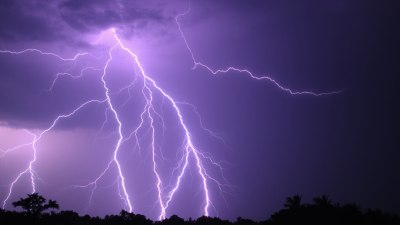Why Hotel Pools Are Either Too Cold or Just Suspiciously Warm
Explore the reasons behind the temperature inconsistencies of hotel pools and the implications for guests.

This image was created with the assistance of Freepik
Hotel pools are often viewed as a refreshing oasis for guests seeking relaxation and recreation during their stay. However, one common complaint among travelers is the unpredictable temperature of these pools. Many guests find themselves either shivering in what feels like an icy plunge or questioning the cleanliness and safety of a pool that seems to be suspiciously warm. This article delves into the factors contributing to the inconsistent temperatures of hotel pools and why they sometimes leave guests feeling confused or uneasy.
The Factors Influencing Pool Temperature
The temperature of a hotel pool can be influenced by a variety of factors, including location, climate, design, and maintenance practices. For instance, hotels located in warmer climates may have pools that are heated to a comfortable temperature for year-round swimming, while those in cooler areas may struggle to maintain a consistent warmth. Additionally, the design and structure of the pool can play a significant role in how heat is retained or lost. Outdoor pools may be subjected to fluctuating temperatures due to weather changes, while indoor pools often feature climate control systems that aim to maintain a more stable environment.
Heating Systems and Their Limitations
Most hotels utilize heating systems to keep their pools warm, particularly in colder months. However, these systems are not always perfect. Issues such as outdated equipment, lack of maintenance, or improper settings can lead to subpar heating performance. Furthermore, the energy costs associated with heating large bodies of water can prompt some hotels to compromise on the ideal temperature, resulting in cooler than expected conditions. Additionally, during peak usage times, the sheer number of swimmers can lower the pool's temperature, creating a scenario where guests are left shivering despite the heating mechanisms in place.
Health and Safety Regulations
Another reason hotel pools might be too cold or unexpectedly warm relates to health and safety regulations. Many local health departments set specific criteria for pool temperatures, typically recommending warmer water for family-friendly facilities and cooler water for lap swimming. In some cases, hotels may prioritize safety over comfort, particularly if they’re concerned about the potential for accidents or overheating, especially among vulnerable populations like children and the elderly. As a result, the temperatures may not align with guests' expectations.
Environmental Factors
Environmental conditions can also have a significant impact on pool temperatures. For example, exposure to sunlight, wind, and ambient temperatures can all affect how warm or cold a pool feels. A pool might seem too chilly on a windy day, while the same body of water can feel excessively warm during hot summer months. Moreover, indoor pools that rely on ventilation systems may struggle to maintain an even temperature if airflow isn't properly balanced.
The Aspect of Cleanliness
Alongside temperature, guests often wonder about the cleanliness of hotel pools, especially when they feel warmer than expected. A pool that is too warm may indicate that it has not been properly treated with chemicals or filtered as frequently as needed, raising concerns about water quality. This can lead to suspicions regarding the pool's sanitation practices, causing guests to hesitate before taking a dip. Proper maintenance is crucial not only for pool temperature consistency but also for ensuring the hygiene and safety of the water.
Guest Preferences and Expectations
It’s important to acknowledge that guests' preferences for pool temperatures can vary widely. Some individuals love a brisk swim to invigorate their senses, while others prefer a warmer, more relaxing environment conducive to lounging. When hotels try to cater to a broad audience, they might opt for a middle ground temperature that fails to satisfy everyone’s expectations. Consequently, the compromise may lead to reactions where some guests find the pool too cool or too warm, feeling let down by their overall experience.
Seasonal Variations
Seasonal changes also play a critical role in how hotel pools are perceived. In off-peak seasons, hotels might operate with reduced staff and resources, leading to lapses in maintenance that can affect both the cleanliness and temperature of the pool. Additionally, many hotels will adjust their heating and cooling systems depending on the astrological cycle, which can create fluctuations in temperature that vary from one month to the next. These seasonal considerations make it difficult for hotels to maintain a consistent swimming experience year-round.
In conclusion, the temperature of hotel pools is a complex issue shaped by a myriad of factors, including heating systems, environmental conditions, health regulations, and guest preferences. Understanding these influences can help travelers set realistic expectations for their pool experiences. While there's no doubt that a perfectly heated pool enhances a hotel stay, the challenges that hotels face in maintaining ideal swim conditions are often underestimated. With this knowledge, guests can be more forgiving of those chilly dips or unexpectedly warm waters, focusing instead on making the most of their time at the pool. Next time you check into a hotel, take a moment to consider all that’s involved behind the scenes, and dive in with open eyes and a relaxed mindset.











